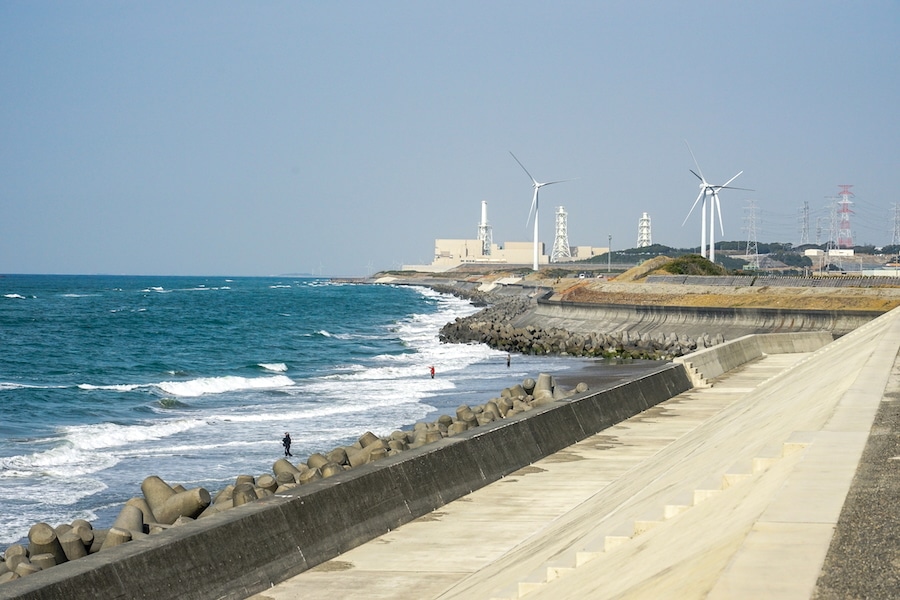This post was originally published on Eco Watch
Japan has its sights set on renewable energy producing 40 to 50 percent of its electricity by 2040, with another 20 percent coming from nuclear power, according to a new draft of its basic energy policy.
Japan is the second-largest liquefied natural gas (LNG) importer in the world, as well as a big consumer of oil from the Middle East, so its energy plans are of interest to gas, oil and coal producers, reported Reuters.
“It is necessary to utilise LNG-fired power as a realistic means of transition, and the government and the private sector must jointly secure the necessary long-term LNG contracts in preparation for risks such as price hikes and supply disruptions,” the new draft of Japan’s Strategic Energy Plan said.
The country’s use of thermal power — particularly from coal-fired power plants — is on course to fall to 30 to 40 percent by 2040. Last year thermal energy made up 68.6 percent of the energy mix.
Tokyo said nuclear power will play a major role in helping the country meet the growing energy demand from microchip factories and artificial intelligence, AFP reported.
“Specifically, we expect Japan’s 2025 SEP to shift from a strong focus on decarbonization to the nation’s dual goals of ensuring energy security (spurred by recent challenges to securing energy supplies triggered by Russia’s invasion of Ukraine) while supporting the rapidly growing energy demands accompanying the digital transformation and hyperscale data centers needed to meet increased computing and storage needs,” a press release from the International Trade Administration said.
Of the Group of Seven (G7) of the most advanced economies in the world, Japan — the fourth-largest — has the dirtiest mix of energy, according to campaigners, with fossil fuels making up almost 70 percent of its 2023 power generation, AFP said.
Japan’s government had previously set a goal of becoming carbon-neutral by mid-century, as well as reducing emissions by nearly 50 percent from 2013 levels by 2030.
The new plans expect renewables like wind and solar to make up 40 to 50 percent of power generation by 2040. That’s up from 23 percent last year and an earlier target of 38 percent by 2030.
The new draft energy policy said Japan wants to avoid relying too much on one energy source in order to ensure “both a stable supply of energy and decarbonisation,” reported AFP.
“Securing decarbonised sources of electricity is an issue directly related to our country’s economic growth,” said Yoshifumi Murase, national energy agency head, on Tuesday, as AFP reported.
The new plan has removed the goal of “reducing reliance on nuclear power as much as possible,” and includes plans for the building of next-generation nuclear reactors at sites with existing reactors that are scheduled to be decommissioned, reported Reuters.
Japan stopped the use of nuclear power plants all over the country following the 2011 Fukushima disaster, but has slowly been putting them back online.
Japan’s energy forecasts for 2040 assume an increased demand for electricity from 12 to 22 percent above 2023 levels.
Despite welcoming the plan, Greenpeace’s Hirotaka Koike said it was “too little, too late,” and called for “much larger ambition” regarding renewables, AFP reported.
“The power mix suggested by the government is not consistent with Japan’s international commitments to tackle climate change and accelerate clean energy transition,” Hanna Hakko with climate thinktank E3G told AFP. “Various scenarios by energy experts show that if the government were to enact supportive policies, renewables could expand to cover between 60 to 80 percent of Japan’s electricity generation mix in the latter half of 2030s.”
A final version of the updated energy plan will be submitted in February to the United Nations.
The post Japan Announces Goal to Produce Up to 50% of Energy From Renewables by 2040 appeared first on EcoWatch.





0 Comments